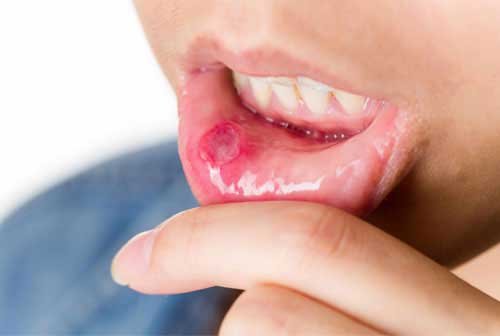Canker sores, also known as mouth ulcers, are painful lesions that develop in the mouth, at the base of the gums, or inside the cheeks or lips. It is the loss of tissue lining in the mouth in scientific words. They’re not contagious and fade gone in a week or two, so they’re nothing to be concerned about. However, if these do not heal within the time frame specified, or if they are large and painful, it is recommended that you see a dentist. Pain can occasionally be so severe that eating, talking, and drinking become difficult and uncomfortable.
